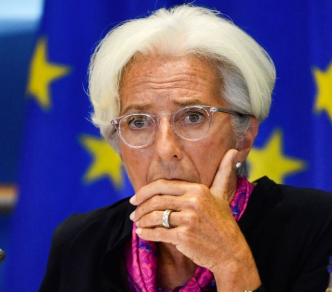Three events that will capture the market’s attention next week: The consequences of the Japanese election, the first look at US Q1 GDP, and the ECB meeting. The central banks of Turkey and Russia also meet. Both are expected to cut interest rates, following rate cuts in the middle of last week by South Korea, Indonesia, and South Africa.
Japan goes to the polls on July 21 to elect the upper chamber of the Diet. There is little doubt that the LDP-Komeito coalition will retain its majority. The real issue is whether it keeps its 2/3 super-majority, which allows it to pursue constitutional changes. The economy itself is struggling, and the sales tax increase in October is unpopular. In addition, news of a (~JPY20 mln or $185k) gap between pension payouts and the cost of a 30-year retirement is seen as due to longevity more than low returns savings but does not sit well in either case. The opposition is weak and divided, and there is much pride attached to hosting the Rugby World Cup in September and the Olympics next year.
The recent Tankan Survey showed sentiment among large manufacturers stood at three-year lows at the end of June. The government reported a larger than expected year-over-year decline in exports–for the seventh consecutive month. The Bank of Japan has reduced its bond purchases with little fanfare, while its equity purchases dominate the ETF space. There is no exit strategy in sight. Indeed, it seems more likely that it steps up its JGB purchases again if the government debt finances a supplemental budget to blunt the effect of the sales tax increase. Before the weekend, Japan reported that its core measure of CPI, which excludes fresh food, fell to 0.5% in June, a two-year low.
Regardless of the results of the election, just getting it over will impact the agenda. The US-Japanese trade talks will turn more serious. At first, the US seemed to want a comprehensive agreement, but now it appears it wants to show positive results. Due to Japanese trade agreements under the TPP and the EU, US farmers are at a commercial disadvantage. It has not been clear what Japan wants in exchange, but some have suggested reduced tariffs on auto parts. Abe interest is projecting Japan’s power dovetails with Trump’s push that greater burden-sharing, including protecting oil tankers in the Gulf.
Perhaps with the election behind him, Prime Minister Abe will be in a better position to have a rapprochement with South Korea. The issue has been escalating since Moon Jae-in took office in 2017 and distanced his administration from the 2015 agreement about Japan’s apology and compensation. At the start of this year, Korea’s high court allowed the seizure of the assets of a Japanese corporation for compensation for forced labor.
The shape of Abe’s response, a licensing process for South Korea companies who buy semiconductor and display materials from Japan on national security grounds, may have been influenced by the US precedent. In fact, it was likely that the US was notified beforehand. Although the US helped broker earlier agreements between its two allies, like one in 1965, the US has shown little interest in mediating. Abe could still ratchet the pressure up a notch as early as next month by removing South Korea from its list of countries with privileged access to Japan’s exports. This would broaden Japan’s impact and notably include auto parts.
(more…)




